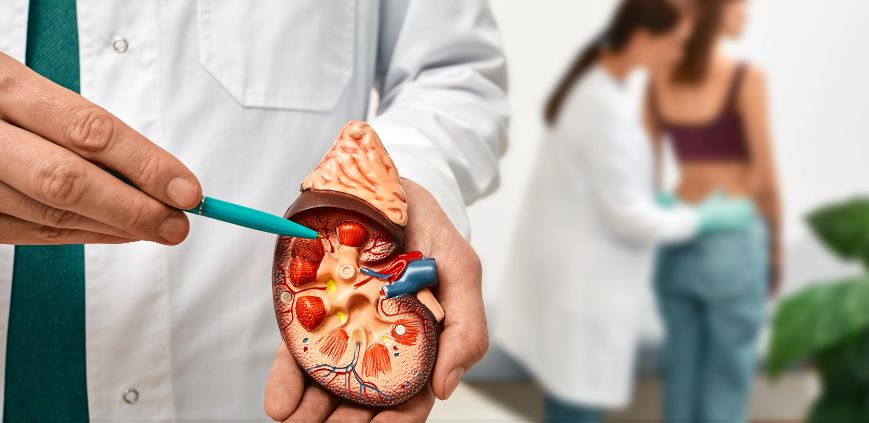Treatments for Kidney Disease
When your kidneys don’t work right, it can lead to serious health problems. But some treatments can help like Filspari, a prescription medication used to treat a rare kidney condition called IgA nephropathy (IgAN).
FILSPARI
Filspari helps reduce protein in the urine, a sign of kidney damage. Lower protein levels mean less stress on the kidneys.
It is often prescribed for people with IgA nephropathy, a kidney disease that leads to protein loss in urine.
Filspari helps slow kidney damage by lowering protein levels in urine, which may improve kidney function over time.
Lifestyle Changes
Healthy lifestyle changes can make a big difference in slowing down kidney disease:
- Diet: Eating a kidney-friendly diet is important. This includes foods low in salt, sugar and protein to reduce stress on the kidneys.
- Exercise: Staying active can help control blood pressure and blood sugar, both of which protect the kidneys.
- Hydration: Drinking enough water helps your kidneys flush out waste, but you should avoid drinking too much, as that can strain the kidneys too.
Controlling Blood Pressure
High blood pressure can make kidney disease worse. Doctors often prescribe medication to keep blood pressure under control, such as ACE inhibitors and ARBs. These drugs help lower blood pressure and reduce stress on the kidneys, which slows down the disease’s progress.
Managing Blood Sugar
For people with diabetes, keeping blood sugar levels steady is key. High blood sugar can damage blood vessels in the kidneys. Medications like insulin or other glucose-lowering drugs can help keep blood sugar in a safe range, protecting kidney function.
Reducing Cholesterol
High cholesterol can damage blood vessels, including those in the kidneys. Statins are often used to lower cholesterol levels. These drugs help reduce the risk of heart problems and protect the blood vessels around the kidneys, keeping them healthy for longer.
Dialysis
When kidney function is very low, dialysis might be needed. Dialysis is a procedure that cleans the blood, doing the kidneys’ job when they can’t. There are two main types of dialysis:
- Hemodialysis: Blood is filtered through a machine outside the body.
- Peritoneal dialysis: The blood is filtered inside the body using the abdominal lining.
Kidney Transplant
In cases where kidney disease is advanced, a kidney transplant may be an option. A kidney transplant involves replacing a damaged kidney with a healthy one from a donor. This can be a highly effective treatment, but it requires lifelong care and medication to keep the new kidney healthy.
Signs of Kidney Disease
Here are some signs that might show kidney disease is present:
- Swelling in the legs and ankles: This can happen when the kidneys can’t remove extra fluid from the body.
- Fatigue and weakness: Waste buildup in the blood can make you feel tired.
- Changes in urination: You might notice more or less urine, or that it’s darker or foamy.
- Loss of appetite: Nausea and reduced appetite can be signs of kidney problems.
Managing Kidney Disease
Kidney disease can be managed with lifestyle changes, medication and in some cases, dialysis or a transplant. Medications like Filspari offer new hope for treating certain types of kidney disease by reducing protein in urine, which helps protect the kidneys. Always speak to your doctor to find the right treatment plan for your needs.

